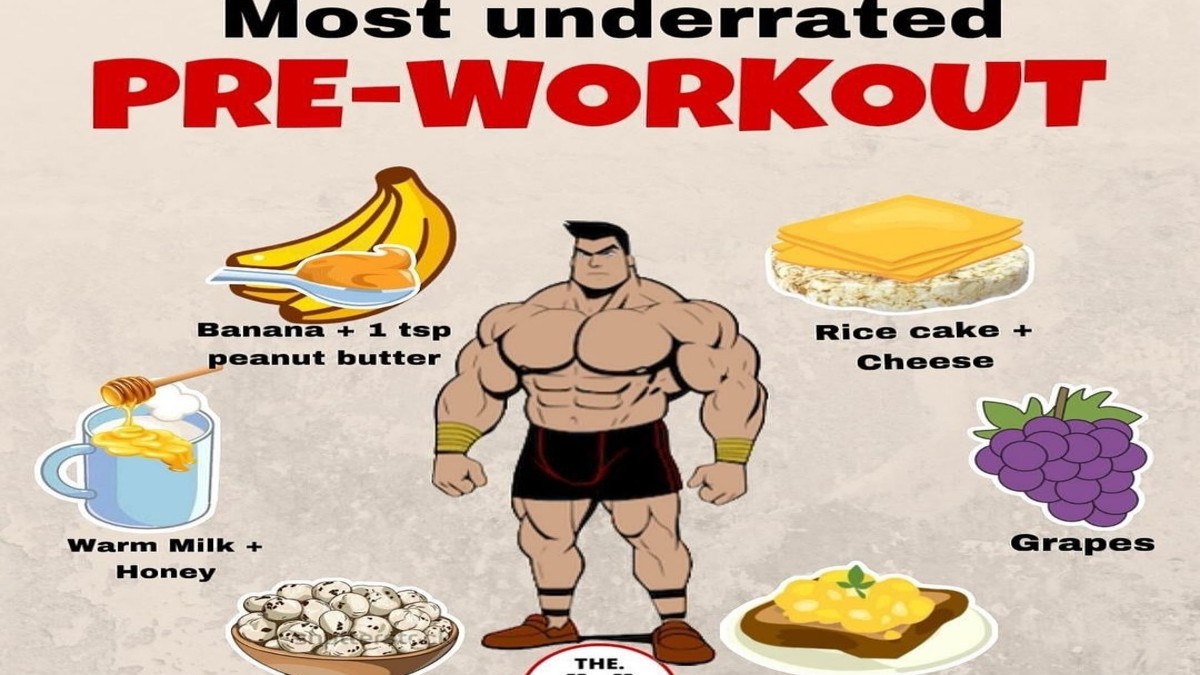Training
Training, In the pursuit of fitness goals, nutrition plays a pivotal role in optimizing performance, recovery, and overall health. Whether you’re a seasoned athlete or a beginner embarking on a fitness journey, understanding the importance of pre- and post-workout nutrition can make a significant difference in achieving your desired results. To shed light on this critical aspect of fitness, we’ve enlisted the expertise of specialists who share invaluable tips and insights on how to fuel your body effectively before and after exercise.
Pre-Workout Nutrition: Fueling Your Performance: Training
Fueling your body with the right nutrients before a workout is essential for maximizing energy levels, enhancing endurance, and promoting muscle growth. According to nutrition specialists, a balanced pre-workout meal or snack should consist of carbohydrates, protein, and a moderate amount of healthy fats. Carbohydrates serve as the primary fuel source for high-intensity exercise, while protein aids in muscle repair and growth. Incorporating healthy fats helps sustain energy levels and promotes satiety during prolonged workouts.
Specialist Tip #1: Prioritize Carbohydrates: Training
According to renowned sports nutritionist Dr. Sarah Parker, “Carbohydrates are your body’s preferred source of energy during exercise, especially during high-intensity activities like weightlifting or sprinting. Aim to consume complex carbohydrates, such as whole grains, fruits, and vegetables, about 1-2 hours before your workout to ensure adequate glycogen stores and sustained energy levels.”
Specialist Tip #2: Include Lean Protein
“Protein plays a crucial role in muscle repair and recovery,” emphasizes fitness nutritionist Mark Thompson. “Incorporate lean sources of protein, such as chicken, fish, tofu, or Greek yogurt, into your pre-workout meal or snack to support muscle maintenance and growth. Aim for a protein intake of 15-20 grams, depending on your body weight and workout intensity.”
Specialist Tip #3: Hydration Is Key
“Don’t overlook the importance of hydration before exercise,” advises sports dietitian Dr. Emily Johnson. “Dehydration can impair performance and increase the risk of fatigue and cramping during workouts. Aim to drink at least 16-20 ounces of water 2-3 hours before exercising and continue hydrating with small sips leading up to your workout session.”
Post-Workout Nutrition: Optimizing Recovery and Muscle Repair
After an intense workout, the body requires replenishment of nutrients to support muscle recovery, reduce muscle soreness, and facilitate glycogen resynthesis. Post-workout nutrition plays a critical role in initiating these processes and promoting overall recovery. Specialists emphasize the importance of consuming a combination of carbohydrates and protein shortly after exercise to maximize the benefits of nutrient timing.
Specialist Tip #4: Timing Is Crucial
“Timing your post-workout nutrition is essential for optimizing recovery,” highlights sports nutritionist Dr. James Wilson. “The post-exercise window, often referred to as the ‘anabolic window,’ is when your body is most receptive to nutrient uptake. Aim to consume a balanced meal or snack containing carbohydrates and protein within 30-60 minutes after your workout to replenish glycogen stores and kickstart the muscle repair process.”
Specialist Tip #5: Choose Fast-Digesting Carbohydrates
“Following a workout, your body’s glycogen stores are depleted, making it important to replenish them promptly,” explains fitness nutritionist Lisa Rodriguez. “Focus on consuming fast-digesting carbohydrates, such as white rice, potatoes, or fruit, to facilitate glycogen resynthesis and restore energy levels. Pairing carbohydrates with protein helps enhance muscle protein synthesis and promotes recovery.”
Specialist Tip #6: Prioritize Protein Quality
“When selecting post-workout protein sources, prioritize quality and digestibility,” recommends sports dietitian Dr. Michael Harris. “Whey protein, found in dairy products or protein supplements, is rapidly absorbed by the body, making it an ideal choice for post-exercise recovery. Alternatively, plant-based options like pea or soy protein can also provide adequate amino acids for muscle repair.”
Specialist Tip #7: Don’t Forget Hydration
“Rehydration is crucial after a workout to replace fluids lost through sweat,” emphasizes Dr. Jessica Evans, a sports nutrition specialist. “In addition to water, consider consuming a sports drink or electrolyte beverage to replenish electrolytes like sodium and potassium, which play key roles in fluid balance and muscle function. Aim to drink enough fluids to restore hydration levels to pre-exercise status.”
Conclusion:
In the realm of fitness and performance, proper nutrition serves as the foundation for success. By prioritizing pre- and post-workout nutrition strategies recommended by specialists, individuals can optimize energy levels, enhance performance, and expedite recovery. Whether you’re aiming to build strength, improve endurance, or simply maintain overall health, fueling your body with the right nutrients at the right times can make a significant difference in achieving your fitness goals. Remember, the key to maximizing performance lies in empowering yourself with knowledge and implementing evidence-based nutrition practices into your exercise routine.

















